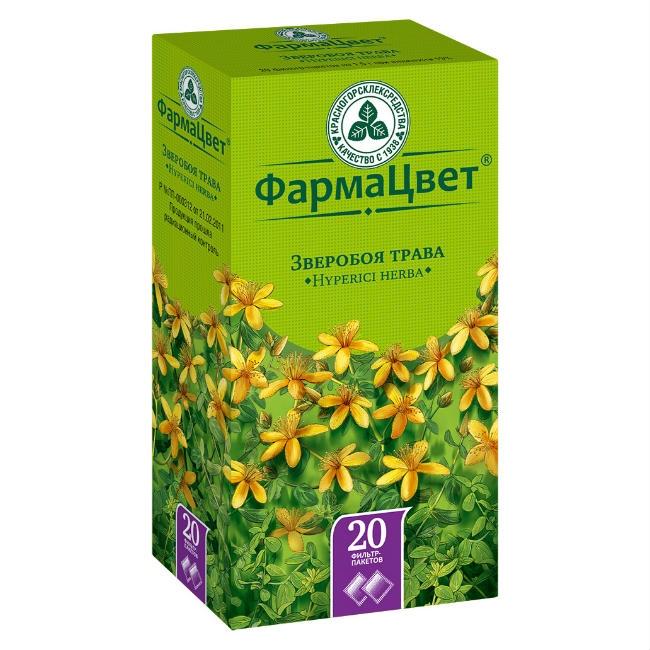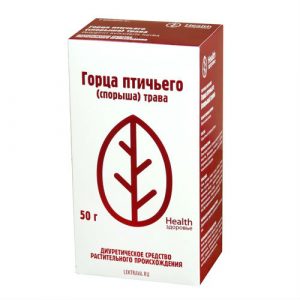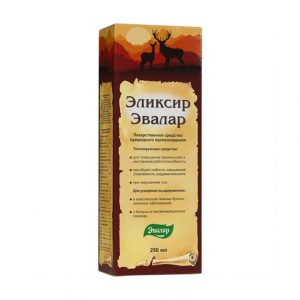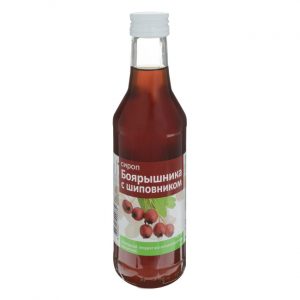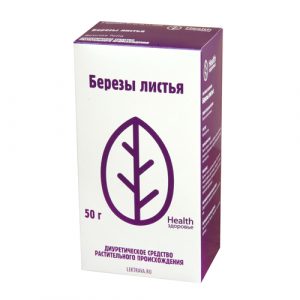Description
Release form
Shredded vegetable raw materials.
packaging
20 filter bags 1.5 g each
Pharmacological action of
St. John’s wort has an astringent and anti-inflammatory effect due to the contained flavonoids, azulene and essential oils, as well as a mild antidepressant, sedative and anxiolytic effect.
The antidepressant effect is due to the ability to inhibit the reuptake of serotonin, norepinephrine and dopamine.
Indications
Symptomatic and reactive depression, anxiety, sleep disturbances.
As an additional remedy for endogenous depression (especially in menopause), as well as for lung diseases, stomach, intestines, gall bladder.
Outwardly: as an additional agent for joint and muscle pain, as well as hemorrhages and herpes zoster for disinfection of wounds.
Contraindications
Hypersensitivity to the drug, pregnancy, lactation, children under 12 years of age.
Special instructions
It is believed that St. John’s wort in high concentrations can damage reproductive cells.
Composition
St. John’s wort grass 100%.
Dosage and administration
About 10 g (6 sachets) of St. John’s wort are placed in an enamel bowl, 200 ml (1 cup) of hot boiled water are poured, covered with a lid, heated in a boiling water bath with periodic stirring for 15 minutes, cooled at room temperature for 45 minutes, filtered, the remaining raw materials are squeezed.
The volume of the resulting infusion was adjusted with boiled water to 200 ml.
Take orally in the form of heat 1/2 cup 3 times a day 30 minutes before meals. The course of treatment is 2-3 weeks.
For rinsing, use 1/2 cup of warm infusion 3-4 times a day. The course of treatment is 5-10 days.
Shake the infusion before use.
Side effects
Allergic reactions: itching of the skin, skin rash, eczema, skin pigmentation, photosensitivity (most often in HIV-infected patients), increases sensitization to animal hair.
From the side of the central nervous system: anxiety, excessive fatigue, headache.
From the digestive system: nausea, epigastric pain, dry mouth, abdominal pain, flatulence, diarrhea or constipation, anorexia.
Reproductive system: Mutagenic to sperm and egg.
Hematopoietic organs: iron deficiency anemia.
Drug interaction
With simultaneous use with MAO inhibitors, it is possible to enhance the effects and develop a hypertensive crisis.
With the simultaneous use of St. John’s wort can significantly affect the concentration in the blood plasma of any drugs metabolized with the participation of enzymes of the cytochrome P450 system.
With simultaneous use with digoxin, a decrease in the effectiveness of digoxin is possible, and after stopping the use of St. John’s wort preparations, an increase in the toxicity of digoxin is possible.
With the simultaneous use of tannic acids, which are present in St. John’s wort, can inhibit the absorption of iron.
There is a report of the development of acyclic bleeding with the simultaneous use of St. John’s wort with oral contraceptives containing a combination of ethinyl estradiol and levonorgestrel.
With the simultaneous use of St. John’s wort reduces the concentration of theophylline in plasma in patients regularly receiving theophylline.
With simultaneous use with fluoxetine, paroxetine, sertraline, fluvoxamine, citalopram, intensification of the effects and development of the serotonin syndrome is possible (increased sweating, tremor, redness, confusion, agitation).
With simultaneous use with cyclosporine, a decrease in the concentration of cyclosporine in blood plasma is possible.
Storage conditions
Dry, protected from light place cooked infusion – in a cool place no more than 2 days.
Keep out of the reach of children!
Expiration
3 years.
Active ingredient
St. John’s wort tion of grass
Prescription terms from
pharmacies Over-the-counter
Form of Treatment
s rye rastitelynoe
Krasnogorskleksredstva, Russia
